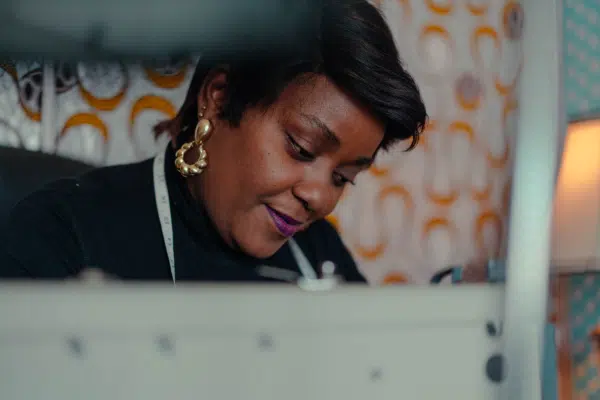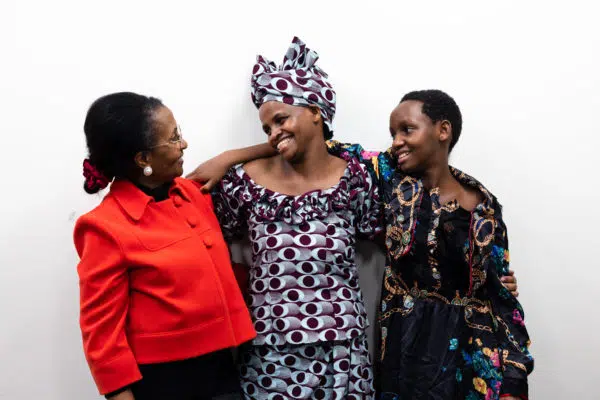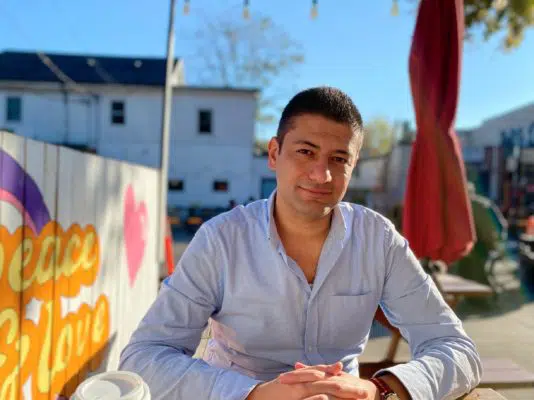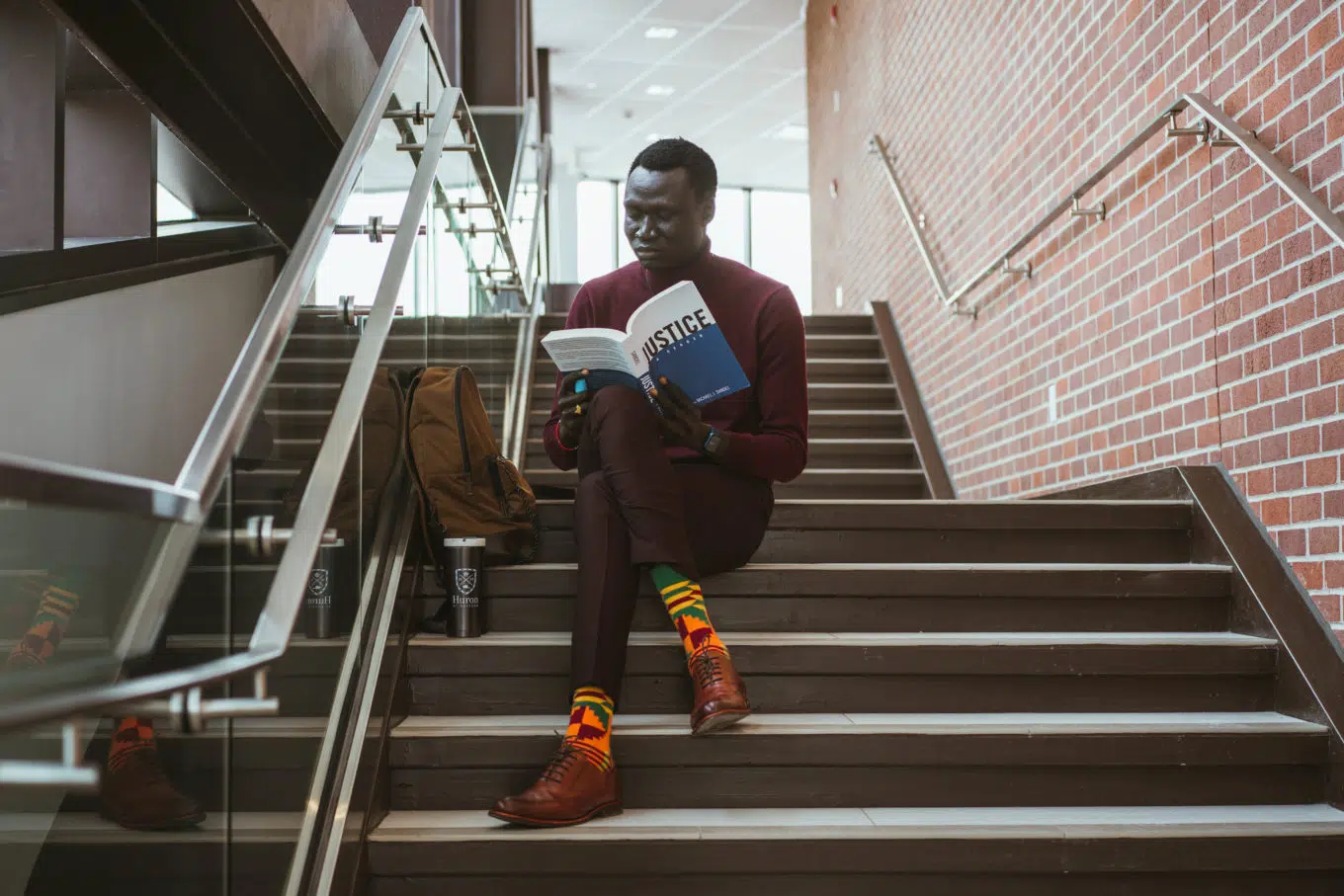
Nhial Deng is a South Sudanese refugee, writer, and community activist. He spent 11 years in the Kakuma refugee camp in Kenya and now attends Huron University in Canada. ©UNHCR/Ian Patterson
How a South Sudanese refugee from Ethiopia found academic opportunity in Canada
By Fatou Alhya Diagne, edited by Hawa Amin-Arsala and Tamy Emma Pepin
From a young age, Nhial Deng developed a passion for storytelling by listening to his father’s stories about the first Sudanese civil war and his childhood in a small South Sudanese village by the White Nile. A village he had to flee in 1971 due to violent conflict that displaced him to Ethiopia, where Nhial was born in 1999.
As most African firstborns, Nhial is expected to be a role model and carry his family’s patrimony. To fulfill this role, the 23-year-old aspiring journalist and community activist says he was constantly reminded of the value of education.
“I understood that leaving my comfort zone would allow me to create a better future for myself by aligning with my vision of completing my higher education,” he says.
Fleeing home
In 2010, Nhial’s home village in Ethiopia, Itang, was attacked by a militia group. As his father woke him up, he heard gunshots and someone screaming outside. He quickly packed his clothes and a water bottle in a small bag, then met the group of people he would flee his country with.
“I was scared to leave my family, but my father reassured me that I would be able to attend school in Kenya,” Nhial says.
After several days of arduous travel, Nhial arrived in Kakuma, a refugee camp in northwestern Kenya. He was 11 years old.
“I did not speak or understand English well which made it difficult for me to form friendships,” he says.
Nhial eventually found healing and hope in the classroom, adapting to his environment and gaining a perspective that would later inform his work with refugees from different Sub-Saharan countries.
“I quickly realized that a lot of my peers were severely traumatized by the memories of the war in their home countries,” he says.
Finding a voice

Nhial is an aspiring journalist and community activist. ©UNHCR/Ian Patterson
In 2012, Nhial created Refugee Youth Peace Ambassadors — a safe space for him and his classmates to meet and exchange views on their experiences in the camp.
“I wanted us to talk about our stories… how we came to the camp, how we became refugees; and to provide peer support to each other. We talked about our dreams,” he says.
Nhial turned to social media determined to share their stories outside of the camp.
“There were a lot of incredible stories happening in Kakuma. I asked myself, ‘Is there a way I can share stories of Kakuma to the world?’ And then I realized that social media is a tool I can use,” he says.
That initiative got him noticed by the UNHCR’s communications staff at Kakuma, who wrote a story about Nhial and publicized his work on their own social media accounts.
“Then different organizations started noticing me as well. It advanced me because it expanded my network and I use that network now to try to advance my career path and further my stories,” he explains.
In Kakuma, Nhial frequented digital centres where he honed his storytelling skills by taking writing and reporting courses on Coursera, an open online platform offering workshops and degrees in a variety of subjects.
While navigating on the e-learning platform, he came across the University of California at Berkeley and decided to apply. He was accepted to their College of Letters and Science.
“Education is the first step towards offering a basic human right that will facilitate the development of refugees.”
“My plan was to major in peace building and minor in journalism,” Nhial says. Although admitted, he was unable to attend because the program did not offer financial aid to international students. Nevertheless, Nhial persisted.
Today, he is taking courses in Global Studies at Huron University in London, Ontario. He arrived in Canada in 2021 after being offered a full-ride scholarship by the university.
“Education is the first step towards offering a basic human right that will facilitate the development of refugees,” Nhial says.
An advocate for higher education
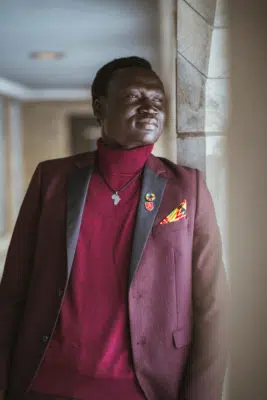
©UNHCR/Ian Patterson
As Nhial settles in Canada, his drive to extend opportunities to other displaced individuals has only increased.
“I am now learning about different challenges that refugee communities must face such as war, conflict and peace to better understand how to design high-quality solutions that will allow them to access higher education,” he says.
Nhial advocates for an increase in fully-funded scholarship programs for refugees.
According to the 2021 Global Trends Report, nearly eight out of ten refugees live in developing countries, where they do not have access to many opportunities, often relying on humanitarian aid in order to survive.
“In most refugee camps, there are no universities which means that refugees have to travel far away from their locations of residence in order to attend one,” Nhial says. He adds that “language is also another barrier” — as refugees often find themselves in countries where schooling is in a different language from their own.
Canada, a newfound home
In London, Ontario, a city of 400,000 people nestled between the Great Lakes, Nhial found a student community that welcomed him with an open heart, helping him develop a sense of belonging in Canada.
“When people flee their homes; the world focuses too much on the refugee aspect of their life and does not pay attention to the fact that these are people with hopes, talents, dreams, and aspirations.”
“I can appreciate small things like someone holding the door for me or buying my first skateboard and practicing during my free time as a form to reclaim my childhood interests,” he says.
Nhial says he feels fortunate to be surrounded by people who do not only see him as a refugee but a human being capable of bringing transformative change to society. He wants to rally governments, foundations and businesses to work collectively with the United Nations in finding solutions to issues such as the refugee crisis, war, climate change, inequalities and poverty.
“When people flee their homes; the world focuses too much on the refugee aspect of their life and does not pay attention to the fact that these are people with hopes, talents, dreams, and aspirations,” he says, adding that refugees are individuals with the potential to contribute politically, economically, and socially to their surroundings.
This story was produced by UPPL. Fatou Alhya Diagne is a consultant and writer specializing in the development of the African creative sectors with a focus on the fashion and textile industries. Tamy Emma Pepin is a consultant and managing editor with an expertise in media, R&D, creative strategy and design. Hawa Amin-Arsala is an interdisciplinary writer, researcher and artist.



